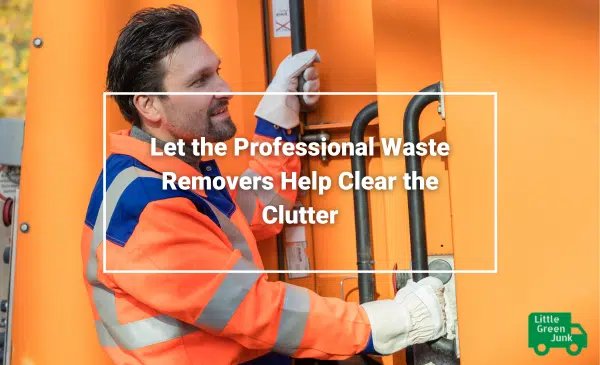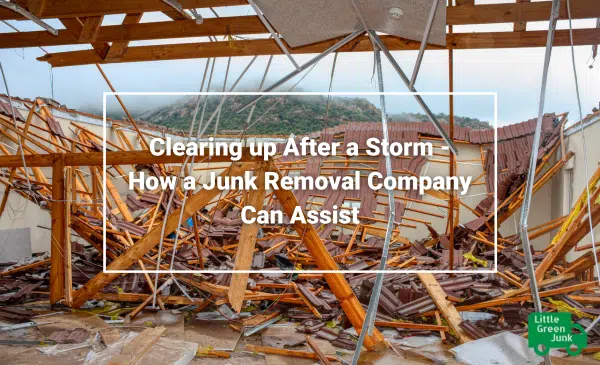
Being ‘Waste Wise’ – York PA
March 10, 2021
Christmas Season Waste – York PA
March 20, 2021One aspect of the economy that has grown exponentially during the uncertainty of this past year is online shopping. Shopping in stores have been discouraged due to the regulations around the pandemic with the result that many of us have taken to shopping online. Unfortunately, this change in our shopping habits has resulted in the closure of many small businesses and stores. Online Returns Waste
Retail e-commerce sales will amount to US $210 billion for the third quarter of 2020, which is an increase of 37% over the same quarter in 2019.
Every internet shopping parcel delivered is in danger of being returned. Studies have shown that the return rates for online shopping are up to four times more likely to be sent back than those returns for items bought at a brick-and-mortar store. Clothing is the most likely item returned, and this is partially due to the fact that there is no consistency in sizing across different brands. People tend to buy an item in a few different sizes or colorways, with the express intention of returning the ones that are not correct.
Have you ever wondered what happens to these returns?
Creating a Mountain of Waste
These unwanted items ordered online and then returned, creates a huge problem for online businesses. Somehow this mountain of waste needs to be disposed of. Unfortunately, it’s cheaper and easier for brands to send these returns to landfills, or to incinerate them, rather than trying to resell them.
The fashion industry produces in excess of 100 billion items of clothing in a year, and of these, at least 20 billion items will not be sold. Fast fashion and fast shipping of orders mean more returns, which all have to be disposed of somehow. Textiles are some of the most difficult materials to dispose of safely, and when added to the wasted natural resources used in their manufacture, present an ecological disaster by being a huge source of pollution. Whether they are disposed of in landfills, or incinerated, they affect the amount of greenhouse gases released into the atmosphere, and in due course, add to global warming.
Brands are aware that dealing with product returns is one of the most difficult parts of running a business. Any negative feedback from dissatisfied customers on how they deal with returns on their social media channels can affect their business. Most brands want to do the right thing and find solutions to these problems, rather than disposing of their returns and unsold items in an irresponsible manner. But unfortunately most of us are unaware of what happens to those items we so readily return.
Creating a Solution
Luckily, there is an awareness of this problem, and there are many different solutions being offered up.
- Donate returns to local charities. Amazon has recently started a program Donate returns to local charities, where their third-party sellers can donate their returns or excess stock to organizations that will give them away to deserving causes rather than throwing them out. Amazon has had record sales during the pandemic, accounting for about 40% of all online sales worldwide. This has resulted in an enormous number of returns and waste, so this is an important effort to keep mountains of waste out of our landfills. Types of items given away through charitable organizations include clothing, household appliances, and even school supplies.
- There are resale businesses selling straight to consumers. These businesses buy up merchandise for resale from large brands such as Walmart and Macy’s. This ensures that millions of products are sold this way a year, and most importantly, keep them out of our landfills.
- Amazon sells returns to e-commerce liquidation websites such as liquidation.com and these sites sell on to anyone who wishes to buy them. And who doesn’t love a bargain.
- There are governments passing legislation that prohibit the destruction and dumping of goods that can still be used. Europe, and especially France, seem to be at the forefront of this as luxury brands are particularly known for destroying unused items, from clothing to perfume to watches, in an effort to protect their brand’s name, and their intellectual property. Legislation is in place here that prohibits the destruction of items including electronics, cosmetics, and clothing.
- There are virtual try-on apps such as Bigthinx which can help you choose the correct size by “trying on” clothes before you fill your basket, thus cutting back on returns.
Most of us are mindful of recycling our waste to protect our environment, and reuse where we can, trying to minimize the trash we send to our landfills. But it is important to realise that our online shopping habits could possibly be undoing any positive actions we carry out in our daily lives. We need to be mindful of the fact that the more we return from our online orders, the more will end up in our landfills. These items are often shipped around the country a few times thus increasing their carbon footprint, before reaching a landfill. Scarce natural resources are used in the manufacture of these products. Toxic dyes that are used often find their way into the water systems, and many of these purchased products are destined for landfills without even being used.
We must begin to hold brands and manufacturers responsible for the way they process their returns and overstock inventory, but we also have to play our part. We have to change the way we shop online and be aware of what is likely to happen to our returns.
There are online platforms that assist companies to resell their returned and overstock items. Blinq.com is one of these that is owned and operated by Optoro. These platforms are estimated that they could help reduce this particular landfill waste by up to 70%.
Why Choose Little Green Junk Company?
At Little Green Junk Company, we specialize in the collection and disposal of all kinds of waste. While we may not be able to make a difference to the huge online returns trash problem, we can remove trash from your home in the York, Lancaster, and Harrisburg areas efficiently and at a time to suit you. We are a licensed waste removal company, and you can be assured we are as committed to keeping our environment as clean as you are, by recycling trash as much as possible and ensuring minimal amounts are dumped in the landfills.
Please contact us at 717 467 0070 for a free, transparent, no obligation quote. We look forward to hearing from you.




